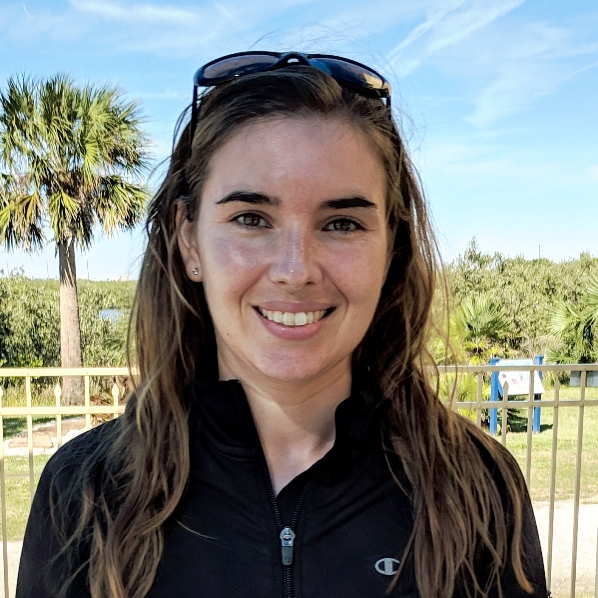 The Whitney Laboratory for Marine Bioscience
The Whitney Laboratory for Marine Bioscience

On February 7, Tracey Schafer, a graduate student in the Osborne Lab gave her exit seminar entitled “Hurricane Impacts on Water Quality and Dissolved Organic Matter Cycling Along an Aquatic Continuum” and successfully earned her Ph.D.
Hurricanes are lanscape-scale disturbances that impact biogeocehmical cycling, as well as the biotic and abiotic properties of aquatic systems. Hurricanes Matthew, Irma, and Dorian have impacted northeastern Florida over the past 5 years and altered conditions across the study system, a blackwater-river to estuary complex.
For her research, water quality was monitored during and after Hurricane Irma, revealing shifts in dissolved organic matter (DOM) loading, altered salinity dynamics, and reshaped landscapes across the system for only a short interval, demonstrating ecosystem resiliency. In order to better understand impacts of storm disturbance within this system and determine how common Florida storms (e.g. thunderstorms and nor’easters) compare to hurricanes, export of DOM and net ecosystem metabolic (NEM) characteristics were examined.
Tracey found that all precipitation events had similar effects on DOM export, but hurricanes had a significantly greater impact on NEM characteristics. Additionally, altered salinity dynamics associated with hurricane passage can alter the photochemical properties of DOM, as seen in irradiation experiments using DOM source material of the three dominant vegetative species across the system.
Her analyses showed unique characteristics across source material, indicating a need for additional photochemical research from specific DOM sources to improve photochemical models. Overall, Tracey was able to demonstrate that hurricanes can be disruptive forces that change riverine-estuarine biogeochemistry in significant ways and are important considerations as tropical cyclone intensity and frequency increases as oceans continue to warm.
Congratulations Tracey!